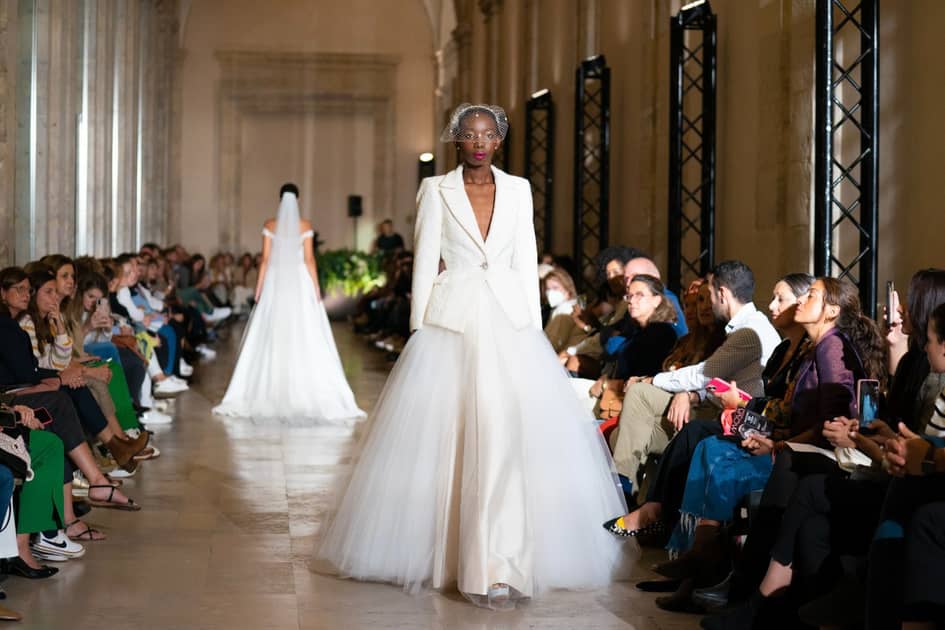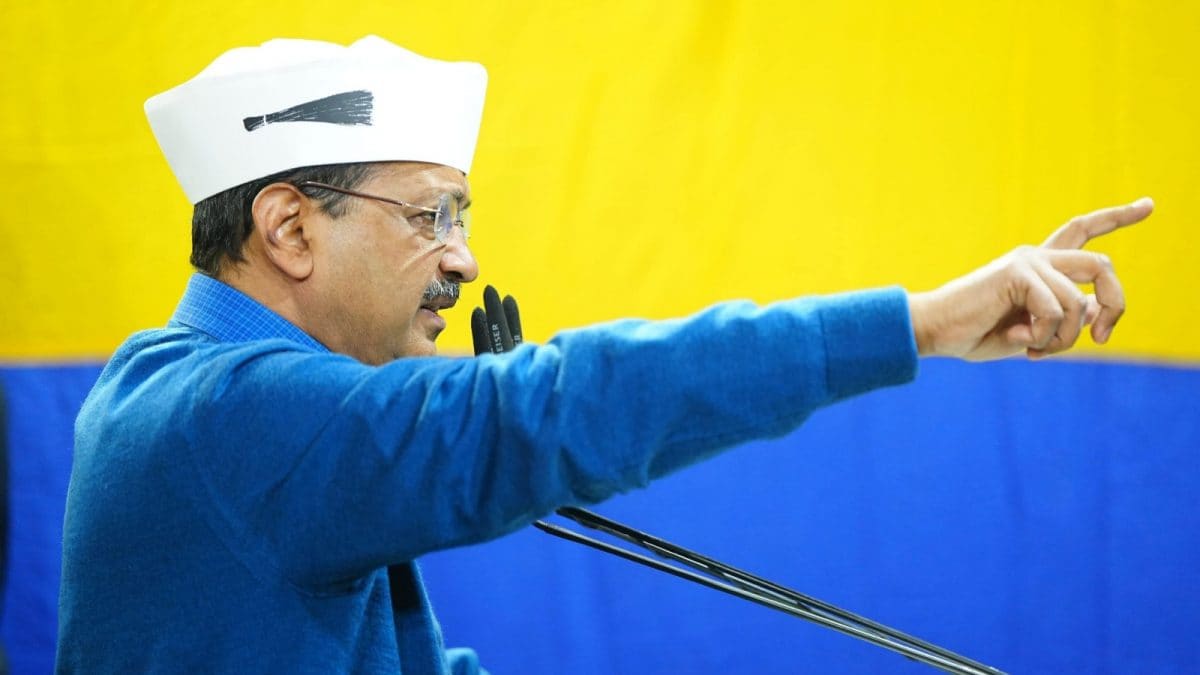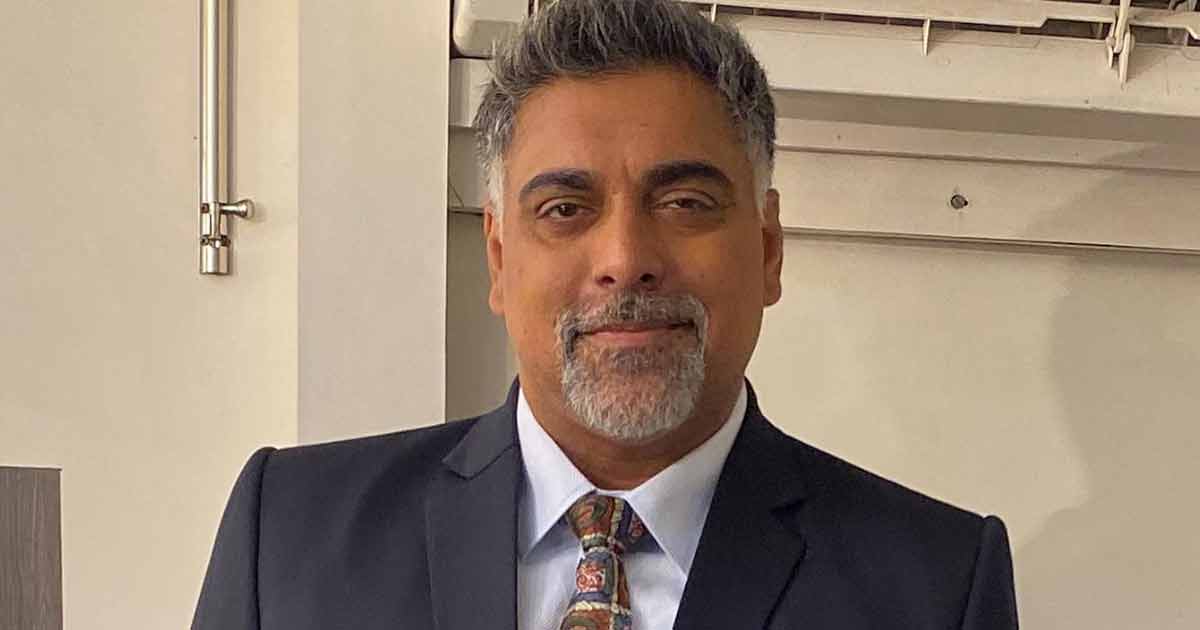Embarking on an entrepreneurial journey is always a leap into the unknown, but it becomes less daunting when you’re confident in what you’re doing. This new article in the series ‘When the idea becomes reality’ focuses on the path taken by Spanish fashion designers Alejandro Maillo and Patricia Caro to establish their own brands. Both studied at the institution La Tecnocreativa in Madrid, a school that combines technology, engineering, and the arts, preparing them for real-life challenges. The secret? According to Alonso Becerril Oriol, CEO of La Tecnocreativa, it’s about fostering “a dose of reality and a mental shift. Here, it’s not about ‘studying,’ it’s about learning and doing.”
Alejandro Maillo Atelier
A passion for fashion has always been a part of Alejandro’s life. A very early vocation where his first models were Barbies. As recalled by his family and friends, at just three or four years old, “I was already drawing dresses and making clothes from the scraps my maternal grandmother gave me, who was a dressmaker,” he told FashionUnited. A fascination he also felt when he saw “wedding or gala dresses” on television.
And I always said that I wanted to do that, so I could tell you that dedicating myself to making wedding and party dresses is one of the things that I have always been clear about in my life.
With the aim of creating his own couture atelier, he graduated in Fashion Design and gained experience working in various bridal and party showrooms, as well as in a haute couture firm in Bilbao. However, he wanted to continue his education to “perfect his method,” and he did so in the haute couture master’s degree at La Tecnocreativa. In fact, as he himself states, it was this final chapter that gave him “the confidence I needed to take the plunge and make my dream a reality.”
In Madrid, he learned “a wide variety of techniques such as hand pleating or draping, as well as practising different haute couture finishes that in my opinion, I believe have been the most useful to be able to offer the service that I offer to my clients today,” he explained. But he also started “This is me,” his collection of wedding and party dresses as part of his Master’s Final Project.
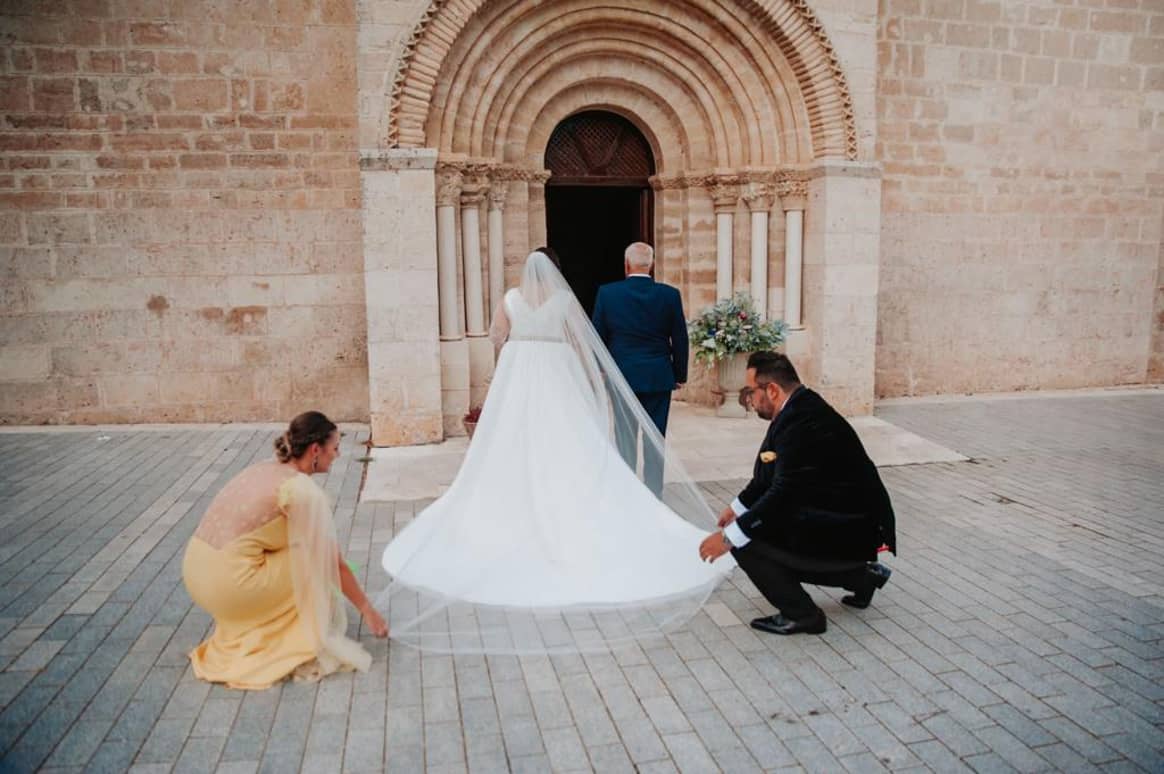
At the end of September last year, he opened the doors of his own workshop in the centre of his hometown: Valladolid (Calle López Gómez, 30). During these months of operation, Maillo highlights the “enthusiasm and passion invested in every dress for each client, we like to connect with them and understand their needs, in order to help them and of course achieve the dress of their dreams.” And although these are bespoke creations for each individual, if he had to define his style, it would be “classic renewed, elegant, and sophisticated.”
Now, the young creator has his sights set on February 10th, where he will dress various personalities and actresses for the Goya Awards gala that will take place in Valladolid and of which, he said, “it will be an honour to be present at the great night of Spanish cinema.”
Decaro Brand
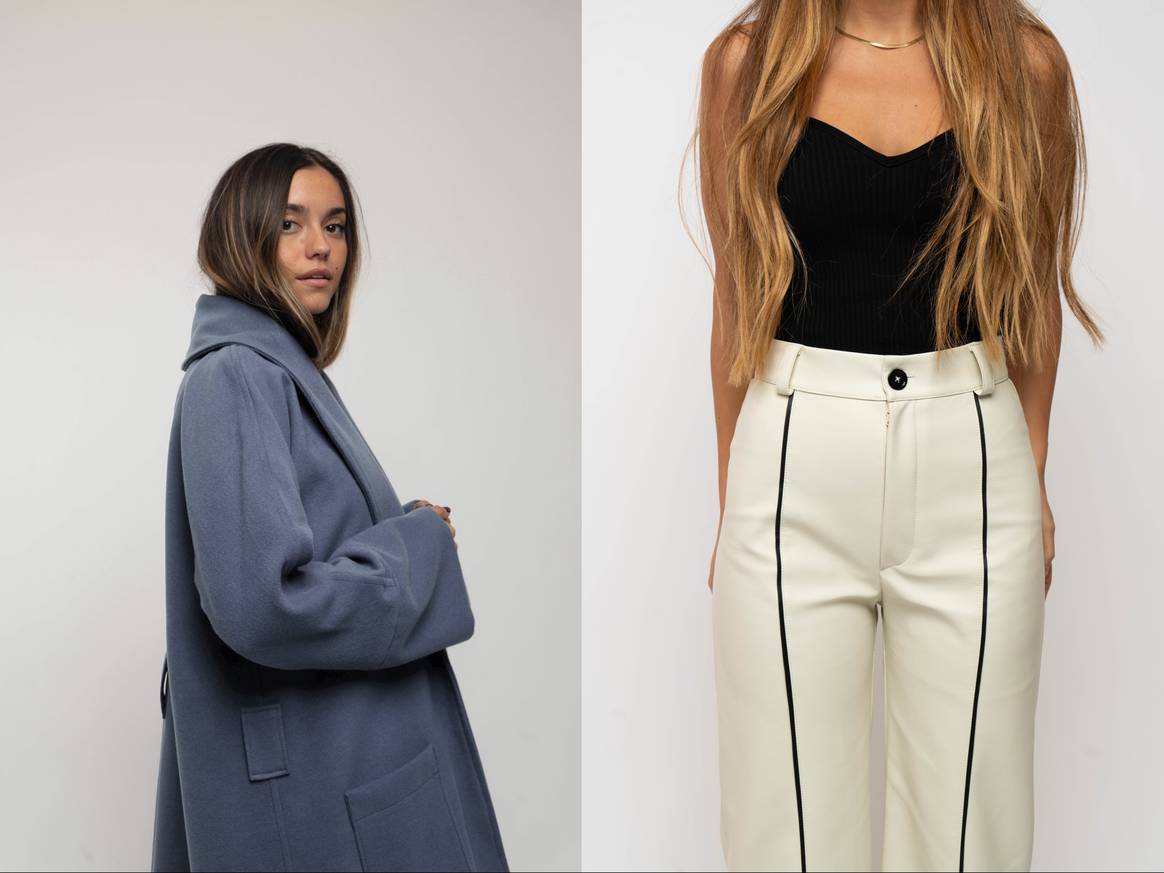
Patricia Caro is the founder and creative director of Decaro Brand, a timeless fashion firm based in Madrid, which contributes its “grain of sand in the fight against fast fashion,” the designer said. “We avoid overproduction by offering very limited edition products and have made-to-order productions with zero stock and zero waste,” she explained.
However, despite this, the young designer admits that it is very difficult for a brand to be 100 percent sustainable, as she considers “that you can always be even more. As long as our resources allow us, we will try to gradually improve everything that is within our reach,” she confesses.
Her case is different from Alejandro’s, she opted for a master’s degree that had little to do with what would become her brand. After completing her degree in Fashion Design at ESNE —currently UDIT—, she decided to do the Master’s degree in Costume Design for Film and TV at La Tecnocreativa. “I wanted to specialise in this area because of my passion for period costumes, I have always been very interested in the history of fashion, I am quite geeky about old and period films,” she tells us.
For her final master project, she wanted to bring to life a book that had no film production: “The Crooked Lines of God.” What seemed like a prophecy because in 2022, the film starring Bárba Lennie was released on Netflix. “I enjoyed and learned a lot from this project, and all the effort was worth it,” since Peris Costumes, the costume rental company founded in 1856, “finally recognized my work and awarded me the Best Master’s Final Project Award,” she recalls.
It was at that moment that Patricia realised that, although she was passionate about costume design work, it could be a “very demanding profession, which involves travelling a lot and spending a lot of time away from home” and that it could rival her other dream, to start a family. So she looked for work in the fashion world and that experience made her “fully aware of the problems in the industry and how much needed to change the way things were done. So I finally decided to make my project as a fashion designer a reality, where I could put my creativity and everything I learned into practice,” and thus actively participate in the slow fashion movement.
The real fusion of technology and creativity
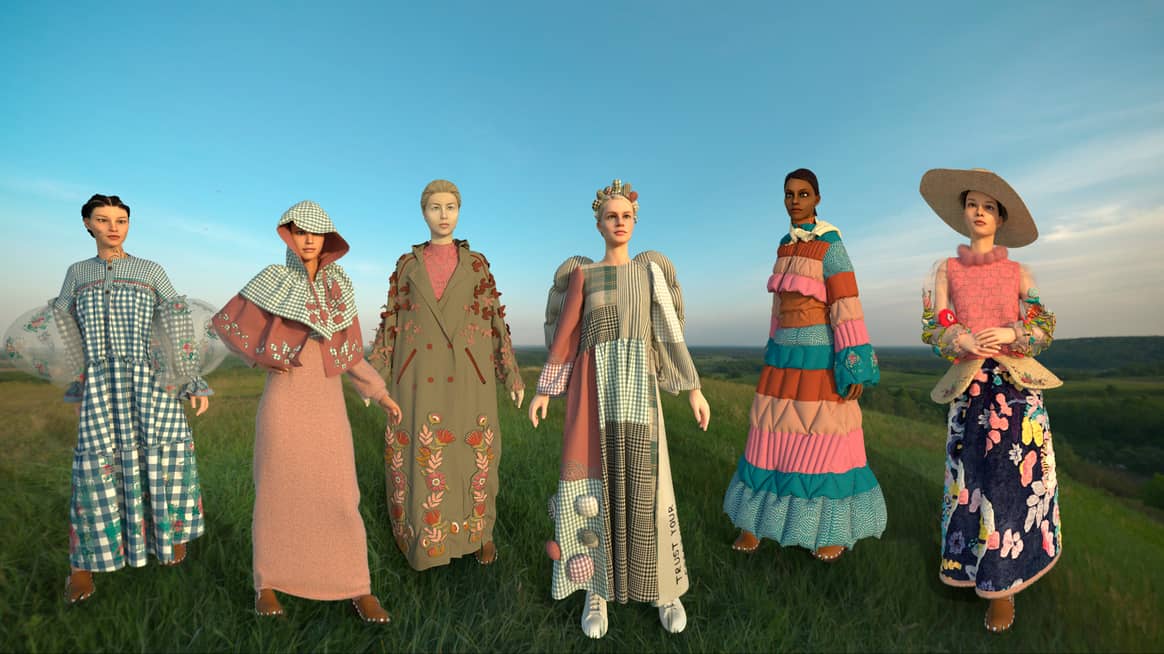
Since its inception, this state-of-the-art digital design and technology school has stood out for “the real fusion of technology and creativity, for a professional world that has changed forever,” admits Alonso Becerril Oriol, CEO of La Tecnocreativa.
From fashion to the metaverse, from creative engineering to design in all its fields, its curriculum is designed for tomorrow’s professionals. “The physical and virtual worlds are coming together, just as design and technology come together,” says Becerril. So “mastering technology” or “understanding that neither artificial intelligence nor sustainable transformation will wait for you if you don’t wake up” is essential.
Pioneers in Europe in master degrees specialising in ‘digital fashion and skins’, as well as Sustainable Fashion and entrepreneurship, their classes are designed for a phygital world. “Here we train designers for Hugo Boss, as well as virtual tailors for Pixar,” comments their CEO.
With an eye on the digital age, Alonso Becerril sees tomorrow with a very optimistic perspective. “In the analogue world, like in haute couture, and costume for film and television, excellence is resurging, but it can no longer live in denial of technology: it would be like refusing to use scissors to keep cutting with flint… The explosion of 3D and Artificial Intelligence (AI) has changed fashion forever, but the job opportunities are immense.”
This article was originally published on FashionUnited.ES. Translation and edit from Spanish into English by Veerle Versteeg.

